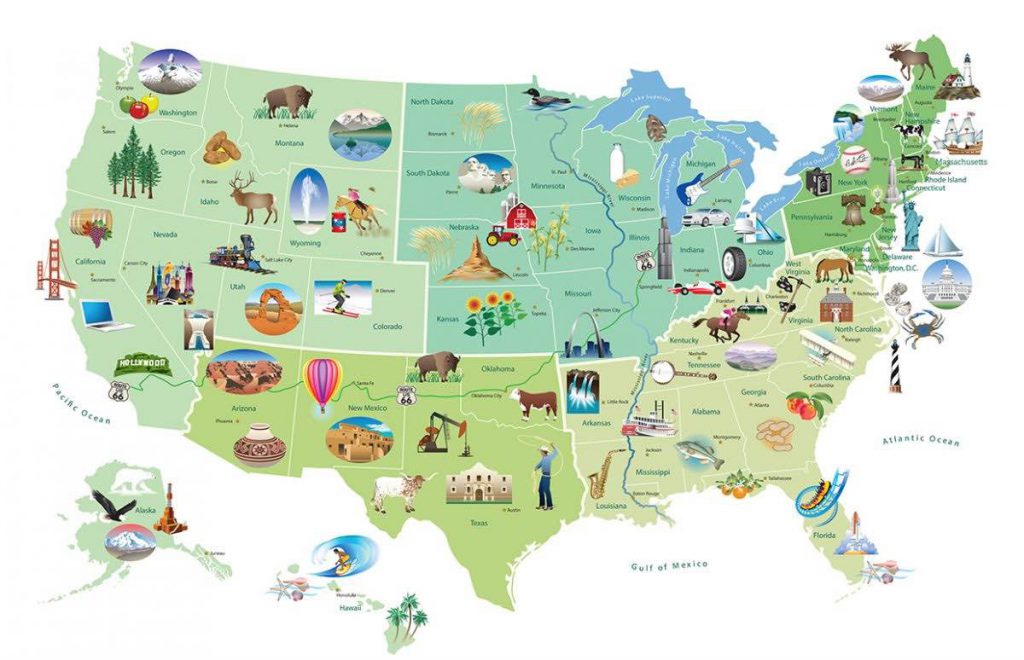Ep. 27: Tatiana Garcia-Granados – founder & COO of the Common Market joins co-host: Jennifer Hashley of the New Entry Farm project, and Pete & Jen’s backyard birds ||
On episode 27 we welcome founder of The Common Market, Tatiana Garcia-Granados – with co-host Jennifer Hashley of the New Entry Farming Project to a discussion on ‘Making Regional Work’. Pioneers in a new system of regional food hubs, Tatiana Garcia Granados and her husband, Haile – founded Common Market in 2008 as an innovative solution to deep problems in the food system by creating a mutually beneficial link between family farmers and urban communities.
.
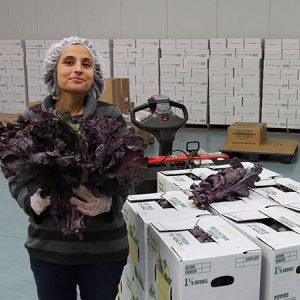
The flagship Common Market Mid-Atlantic is a mission-driven distributor of sustainable, local farm foods. Spawned of their North Philly Neighborhood – they developed a concept that would connect institutions and communities with good food from now over 200 producers in Pennsylvania, New Jersey, New York, Delaware, Maryland, and Virginia. There’s also a second proof case in the The Common Market Georgia – connecting producers with larger institutions in Georgia, Alabama, North Carolina and Tennessee. And, a newly spawned 3rd program out of Houston, TX, NYC & DC. All hubs set to build local food systems that generate health and wealth of rural and urban communities alike. Each day, thousands of pounds of fresh produce, meat and dairy products leave the distribution center of the Common Market destined for school lunches, hospital meals and the shelves of local grocery stores.
“We provide specific grower information when you place an order, and it’s printed on every invoice and every case of food so you know exactly how the food is grown and where it’s coming from.” – explains Garcia- Granados.
.
Co-host Jennifer Hashley always enriches the conversation. Coming at it from the producer, aggregator, and teacher’s seat – Hashley knows the bottlenecks, and the potential of it all. Centered out of the Tufts Friedman School of nutrition – The New Entry Sustainable Farming program is one of the first initiatives nationwide to help immigrants and refugees develop commercial farming opportunities. Jennifer’s goal is to help new farmers excel in the field, and New Entry gives them the tools to do that. It’s a revolutionary program that looks at sustainable and regenerative farming as jobs creation, and economic growth for regions often in need of stimulus. In partnership with her husband, Jennifer oversees a diversified pasture based livestock operation, including Pete and Jen’s Backyard Birds on the the renowned Codman Community Farm in Lincoln MA. She’s a wonderful advocate for the agricultural region of the Northeast, and the small farmer everywhere..
.
Finally, Tatiana and Jennifer share some of their experiences for their Eisenhower Fellowship programs. Tatiana’s focus on food access and policy throughout her program in Brazil was inspiring, and offered benchmarks for what can be accomplished to support the many family farms & farmers in our country. Jennifer witnessed a colliding of two agricultural worlds in Ghana & Nigeria. Titans from conventional seek scale, but are running into infrastructure and resource limitations needed to operate their model.
.
Whether it’s a food system in South America, North America, Africa, the EU or the Far East – Regional is everyone’s future. Tatiana Garcia-Granados & Jennifer Hashley are two of the great folks proving that regional can happen! We’re lucky they’re both on ourside.
@CommonMkt
@HaileJohnston
co-host:
Jennifer Hashley
- Founder of Tufts New Entry Sustainable farming project
- Owner of Pete & Jen’s backyard birds
- Evangelist | Activist| Innovator
- Eisenhower Fellow 2016
@JHashley


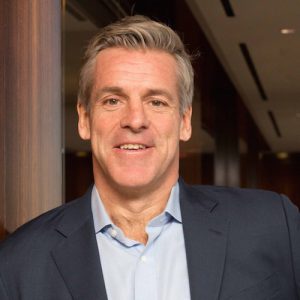 In our 35 minute conversation we discuss a variety of topics throughout the value chain of food, and throughout a circular economy. Warren begins episode by shares interesting anecdotes and details on a few of their portfolio companies. He describes the criteria Bain Double Impact uses to assess and invest in these different companies. Warren also shares how he got into the impact space; how through both personal motivation to improve his wellbeing and to cast a leading light for his family – they’ve defined a tip-of-the-spear approach in private equity which could till new ground for an industry looking to better connect with millennial investors set to inherit $40 trillion in the next decade.
In our 35 minute conversation we discuss a variety of topics throughout the value chain of food, and throughout a circular economy. Warren begins episode by shares interesting anecdotes and details on a few of their portfolio companies. He describes the criteria Bain Double Impact uses to assess and invest in these different companies. Warren also shares how he got into the impact space; how through both personal motivation to improve his wellbeing and to cast a leading light for his family – they’ve defined a tip-of-the-spear approach in private equity which could till new ground for an industry looking to better connect with millennial investors set to inherit $40 trillion in the next decade.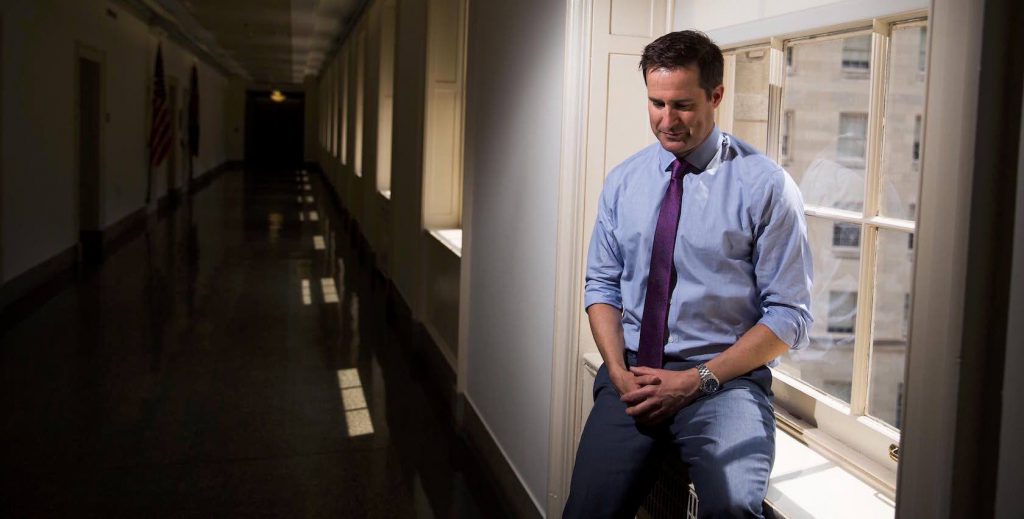
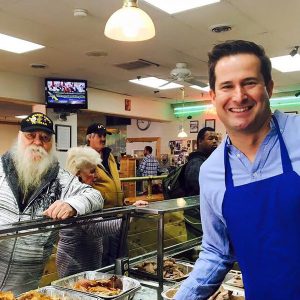 In our 30 minute conversation we evaluate the capacity of including fisherman and ocean farmers in future US Farm bills. For clarity, 80% of the resources of the proposed 2018 Farm bill will be allocated to SNAP (Supplemental Nutrition Assistance Program) aka. food stamps. This national program of a 1/2 of trillion dollars which arises every five years is in fact our shared domestic food plan, and it drastically under represents our population densities in coastal cities. The inclusion of fisheries & seafood not only adds a voice to the food plan for our largest populations, and guarantees more high-quality food for more in need of SNAP, but it gives our fisherman the same war chest to deal with impending environmental change as we currently employ with many terrestrial food producers. Effectively, we discuss how this pragmatic approach to introduce multiple returns to diverse stakeholders seems realistic under new and future leadership.
In our 30 minute conversation we evaluate the capacity of including fisherman and ocean farmers in future US Farm bills. For clarity, 80% of the resources of the proposed 2018 Farm bill will be allocated to SNAP (Supplemental Nutrition Assistance Program) aka. food stamps. This national program of a 1/2 of trillion dollars which arises every five years is in fact our shared domestic food plan, and it drastically under represents our population densities in coastal cities. The inclusion of fisheries & seafood not only adds a voice to the food plan for our largest populations, and guarantees more high-quality food for more in need of SNAP, but it gives our fisherman the same war chest to deal with impending environmental change as we currently employ with many terrestrial food producers. Effectively, we discuss how this pragmatic approach to introduce multiple returns to diverse stakeholders seems realistic under new and future leadership.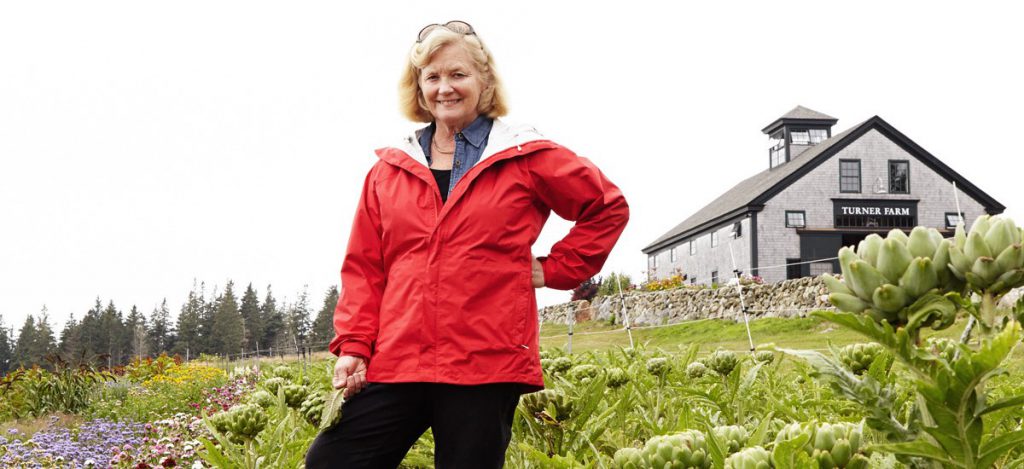
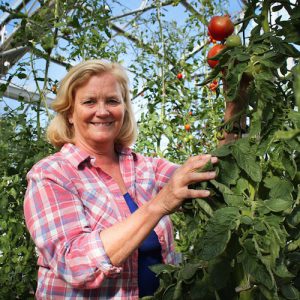 Truth is, a good portion of our discussion focused on the beautiful State of Maine. Once, and what could again be the fulcrum of the regional food system of the Northeast, Maine has an agricultural linage dating back to the beginning of the Union. 3500 miles of coastline boasting access to a bounty of some of the cleanest waters and seafood in the world. Through this, Maine could cast a long shadow in future bio-regional economies. Pingree embraces systems thinking on her farmstead & Inn in Maine, and in the other House – on The Hill, 600 miles south.
Truth is, a good portion of our discussion focused on the beautiful State of Maine. Once, and what could again be the fulcrum of the regional food system of the Northeast, Maine has an agricultural linage dating back to the beginning of the Union. 3500 miles of coastline boasting access to a bounty of some of the cleanest waters and seafood in the world. Through this, Maine could cast a long shadow in future bio-regional economies. Pingree embraces systems thinking on her farmstead & Inn in Maine, and in the other House – on The Hill, 600 miles south.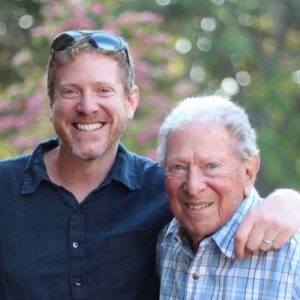 Producing Châteauneuf-du-Pape style Rhone wines native to the Southeast Corner of France, today we welcome Partner and General Manager of Tablas Creek Winery Jason Haas to Sourcing Matters. Situated squarely between San Francisco & Los Angeles, Jason’s family began their California winery in 1989 using elevated practices that focused on Organic and regenerative in effort to benefit their soils, and the flavor of their wines. Now, producing 360,000 bottles a year of biodynamic and diverse vitas – Tablas Creek has established themselves as a desired brand that engages consumers and progresses the industry through their commitment to producing world-class wine.
Producing Châteauneuf-du-Pape style Rhone wines native to the Southeast Corner of France, today we welcome Partner and General Manager of Tablas Creek Winery Jason Haas to Sourcing Matters. Situated squarely between San Francisco & Los Angeles, Jason’s family began their California winery in 1989 using elevated practices that focused on Organic and regenerative in effort to benefit their soils, and the flavor of their wines. Now, producing 360,000 bottles a year of biodynamic and diverse vitas – Tablas Creek has established themselves as a desired brand that engages consumers and progresses the industry through their commitment to producing world-class wine.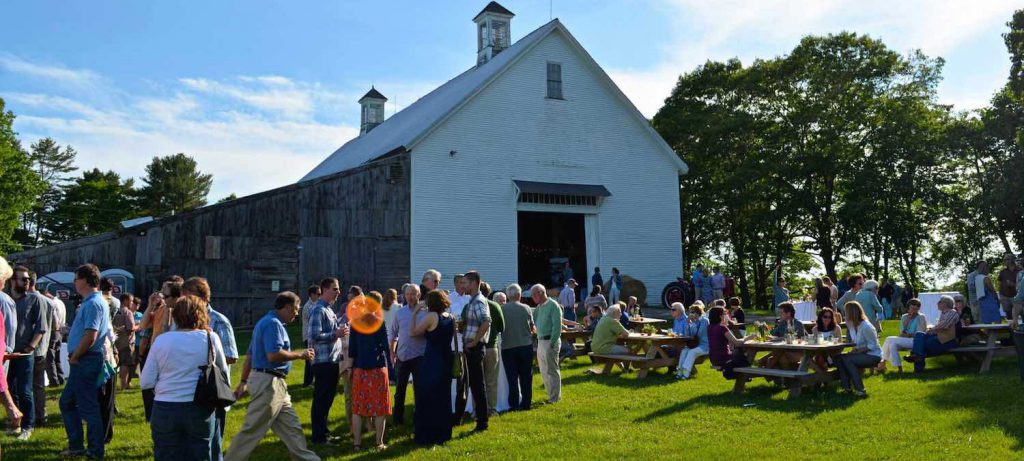
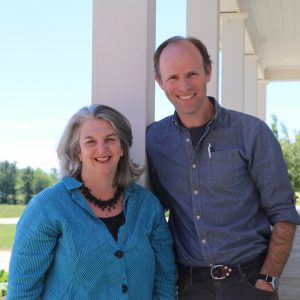 Joining for episode 22 of Sourcing Matters we welcome Dave Herring: Executive Director at Wolfe’s Neck Center; and Fiona Wilson, Chair of the Board at Wolfe’s Neck, and ED at Center for Social Innovation and Enterprise, Asst. Prof. at UNH’s Paul College of Business.
Joining for episode 22 of Sourcing Matters we welcome Dave Herring: Executive Director at Wolfe’s Neck Center; and Fiona Wilson, Chair of the Board at Wolfe’s Neck, and ED at Center for Social Innovation and Enterprise, Asst. Prof. at UNH’s Paul College of Business.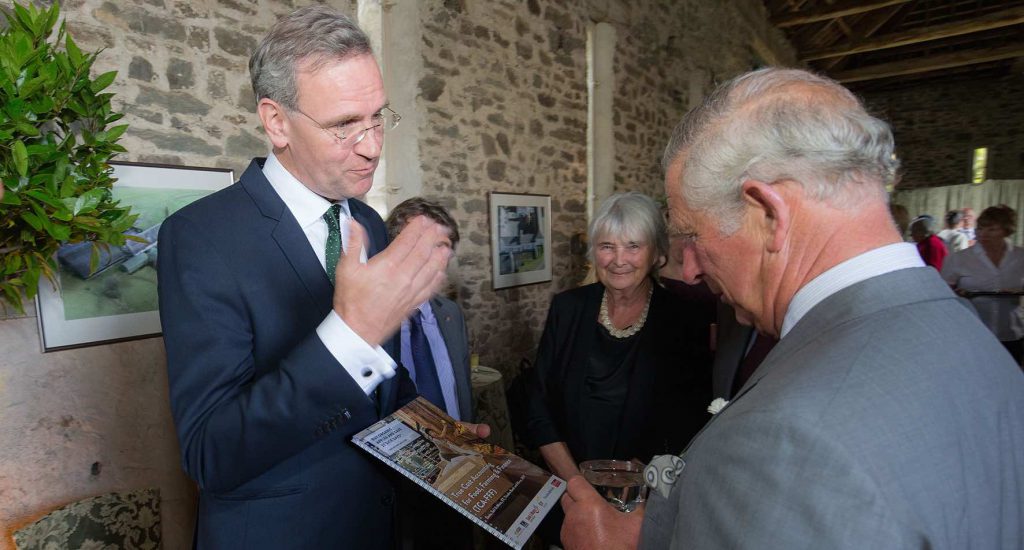
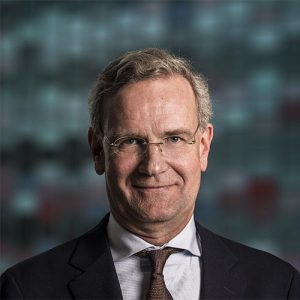 Along with the UN and Ernst & Young – Volkert Engelsman and the team at EOSTA have levered the Nature & More framework to prove healthier & cleaner food has greater value than the cheap stuff. The pilot program has been labeled “True Cost Accounting for Food, Farming & Finance”. We learn that French Government has calculated a 54b Euro impact of externalized costs from contamination on the water supply and environmental impact tied to conventional food production. More over, the UN calculates $2.8 Trillion of environmental externalized costs and $2.1 Trillion in social damage tied to extractive models of agriculture. Engelsman explains that’s about the equivalent of the total revenues of all food products from around the world. “The report makes clear that organic food is not too expensive, but rather conventional food is too cheap.” – details Engelsman.
Along with the UN and Ernst & Young – Volkert Engelsman and the team at EOSTA have levered the Nature & More framework to prove healthier & cleaner food has greater value than the cheap stuff. The pilot program has been labeled “True Cost Accounting for Food, Farming & Finance”. We learn that French Government has calculated a 54b Euro impact of externalized costs from contamination on the water supply and environmental impact tied to conventional food production. More over, the UN calculates $2.8 Trillion of environmental externalized costs and $2.1 Trillion in social damage tied to extractive models of agriculture. Engelsman explains that’s about the equivalent of the total revenues of all food products from around the world. “The report makes clear that organic food is not too expensive, but rather conventional food is too cheap.” – details Engelsman.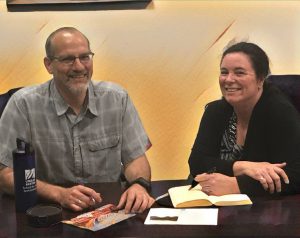 Over 70% of our planet is blue. Unfortunately, these oceans have become a trash receptacle over the past 50 years, and it appears we’re running out of never-never-land to throw-out our growing waste stream. You see, in that same half century time period – human population has skyrocketed from 3.5 billion to 7 billion. Single-use non-biodegradable plastics are now everywhere; even forming its own landmass! And, that’s just the beginning…
Over 70% of our planet is blue. Unfortunately, these oceans have become a trash receptacle over the past 50 years, and it appears we’re running out of never-never-land to throw-out our growing waste stream. You see, in that same half century time period – human population has skyrocketed from 3.5 billion to 7 billion. Single-use non-biodegradable plastics are now everywhere; even forming its own landmass! And, that’s just the beginning…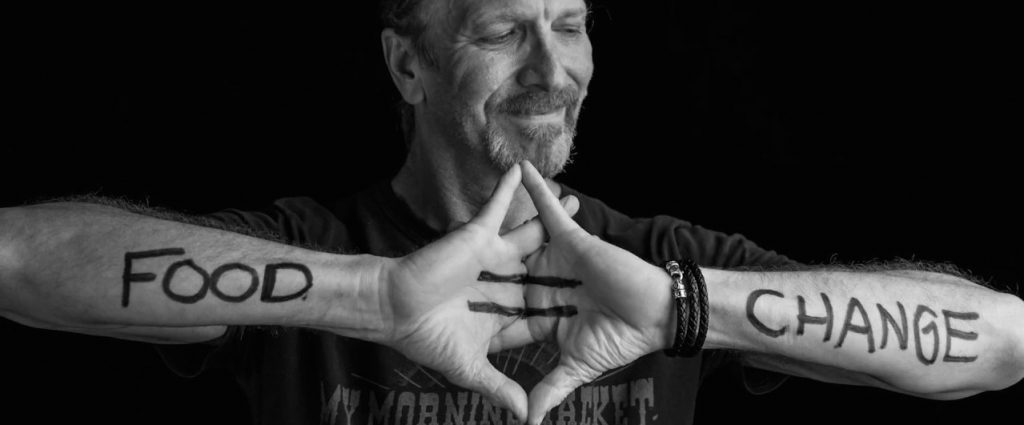
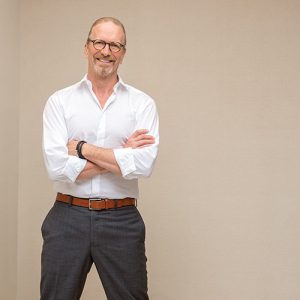 The entire hour of our conversation is well worth a listen. But, if you have only 10 minutes to lend an ear – tune-in to hear the power of Michel’s words and the emotional description of his dear friends Paul Newman and Gus Schumacher. Both influential allies; both impressive leaders; both iconoclasts who’ve have disrupted by leaving this place much better than they had found it.
The entire hour of our conversation is well worth a listen. But, if you have only 10 minutes to lend an ear – tune-in to hear the power of Michel’s words and the emotional description of his dear friends Paul Newman and Gus Schumacher. Both influential allies; both impressive leaders; both iconoclasts who’ve have disrupted by leaving this place much better than they had found it.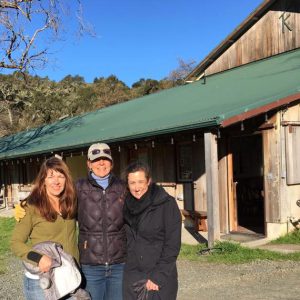 Today I’m joined by two knowledgeable thought leaders pioneering a better food movement sprawling from coast to coast, and everywhere in-between. On episode 18 of Sourcing Matters Wendy Millet – Director of Tomkat Ranch research center, and Jill Isenbarger – CEO of Stone Barns Center discuss all important topics ranging from circular economies, holistic management, food & Agtech, and more which have begun casting a long shadow over a quickly changing domestic food landscape.
Today I’m joined by two knowledgeable thought leaders pioneering a better food movement sprawling from coast to coast, and everywhere in-between. On episode 18 of Sourcing Matters Wendy Millet – Director of Tomkat Ranch research center, and Jill Isenbarger – CEO of Stone Barns Center discuss all important topics ranging from circular economies, holistic management, food & Agtech, and more which have begun casting a long shadow over a quickly changing domestic food landscape. 